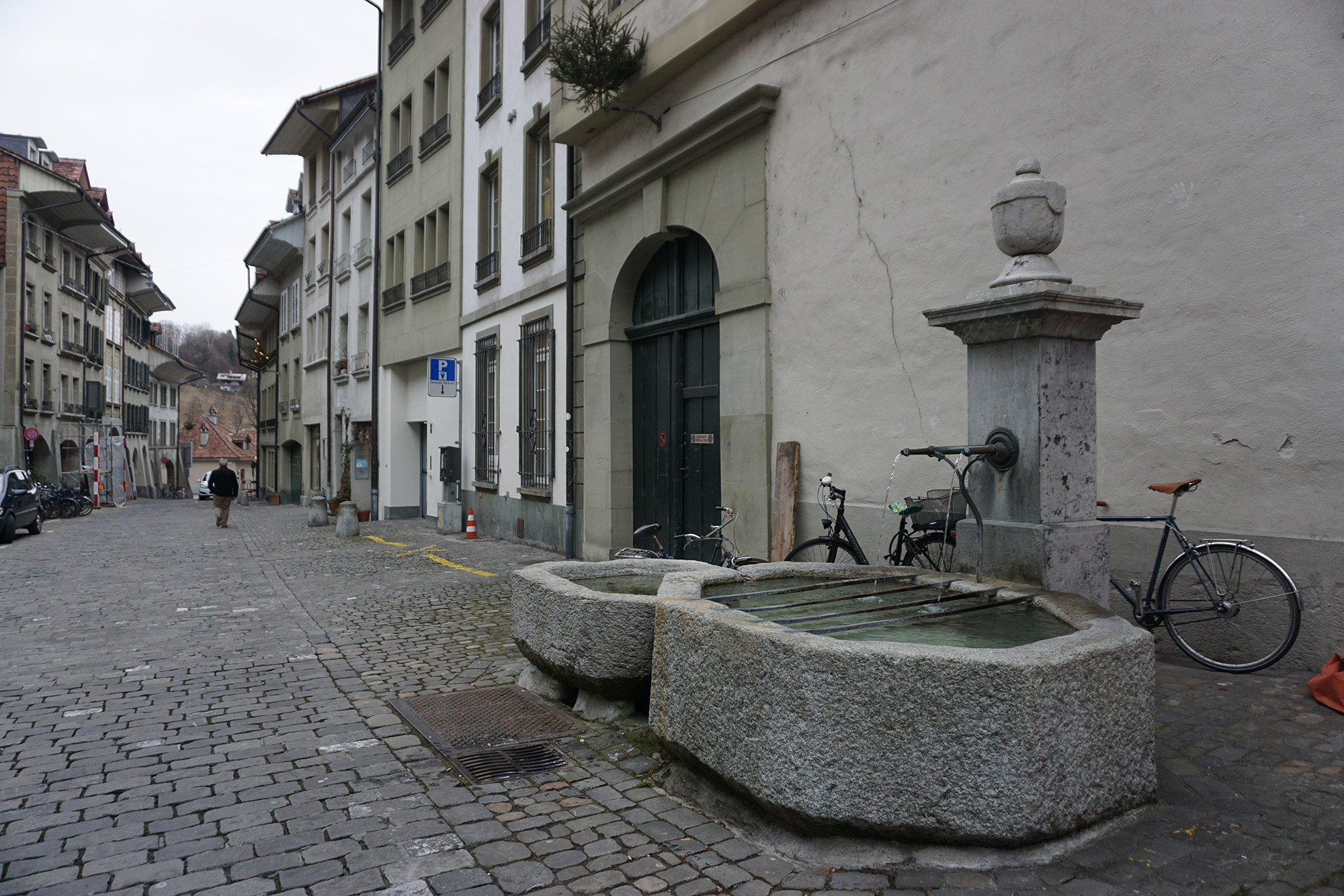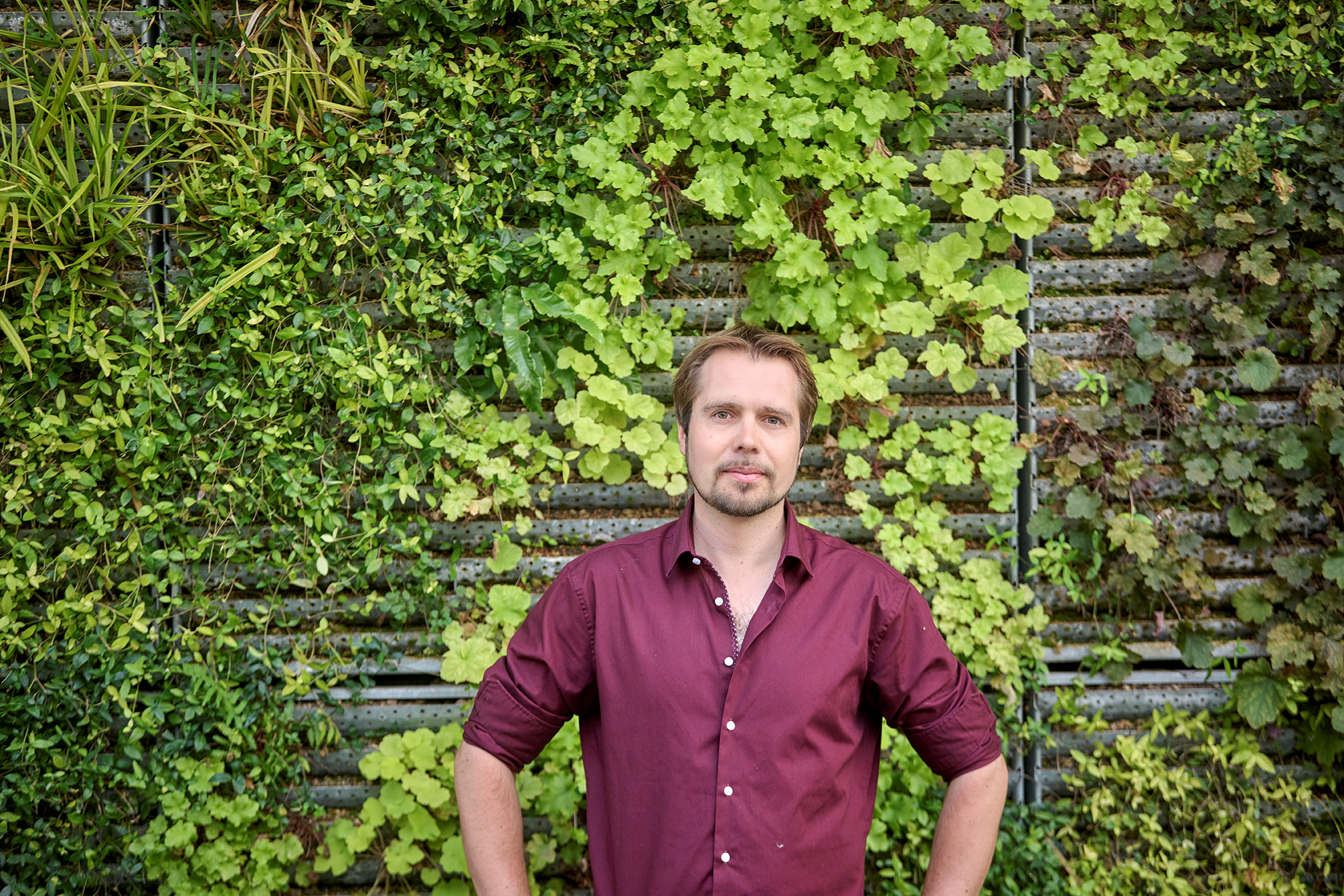In order for cities to overcome challenges such as climate change and biodiversity loss and remain attractive, they need to become greener. The Institute of Plant Sciences at the University of Bern is now embarking on an experiment: with the help of local residents and private and public partners, Bern's old town is to be enhanced with plants with the aim of making Postgasse the greenest street in Switzerland. The project is due to start on 6 May 2023.
Read the original press release here.
A good half of the world's entire population, 4.2 billion people, live in urban areas. Cities have many advantages, but also face enormous challenges. With climate change, they heat up much more than the surrounding countryside, they offer hardly any habitat for plants and animals in the city centres, and their quality of life is often lower than desired. An efficient way to meet all of these challenges is appropriate greening. However, the desired greening is particularly difficult in city centres and core cities with structures that are worth preserving. How can these places offer more space for nature and thus a better quality of life without destroying existing structures or going beyond the financial framework? Answers to these questions are urgently needed.
The University of Bern is intensively involved in research and teaching on climate change, biodiversity loss, urbanisation and health. At the initiative of Professor Matthias Erb, the Institute of Plant Sciences at the University of Bern is now launching an initiative to develop a solution for the rapid, cost-effective greening of city centres.
Green instead of grey in the Postgasse
Postgasse, a picturesque, listed alleyway in Bern's old town, is set to blossom thanks to a participatory approach. "We are helping residents to green their own windowsills and outdoor areas with suitable plants," says Matthias Erb, the initiator of the project. The arcades will be incorporated into the greenery without affecting public life or the building structures of the alleyway. The effects of the greenery on temperature, biodiversity, water balance and quality of life will then be researched (see info box). The aim is to turn Postgasse into the greenest alleyway in Switzerland in the long term, including documentation of this transformation. "The data and experience gathered from this pilot project should help Bern and other cities to increase their sustainability and attractiveness even more quickly and easily in the future," says Armin Komposch from the Institute of Plant Sciences, who is supervising the project as a research associate.

Partner companies enable greening
The project is supported by committed partners from Bern's business community. Thanks to this support, the residents of Postgasse can decorate their buildings largely free of charge as part of a planting day. Native and site-appropriate shrubs and trees, vegetable and herb seedlings from organic production and sustainable soil from by-products of Swiss forestry and agriculture are contributed by companies from the green sector (see info box). A spin-off company from the University of Bern is also providing plant pots with automatic irrigation. "We all consider the exchange between science and practice to be particularly valuable. In this way, findings from science are promptly incorporated into practice and the knowledge gained flows back into science," explains Matthias Erb.
Planting day on 6 May 2023
The project will be officially launched on Saturday, 6 May 2023, when residents and other interested parties will be invited to a planting day in conjunction with Leist der Untern Stadt Bern. Plants, pots and soil will be delivered, and residents can collect the material and use it to further green their alleyway as they see fit.

"We hope that the residents themselves will then look after the plants so that the greenery is maintained in the long term," explains Matthias Erb. The planting day will also provide an opportunity for in-depth discussions with everyone involved in the project. "We are excited about our pilot project, with which we are conducting research into current social challenges such as climate change and at the same time involving the affected urban population in the process," concludes Erb.
Commitment of the green sector as a sign of scientifically supported sustainability
The "Greenest Alley in Switzerland" is supported by companies in the green sector, which provide plants, seedlings, soil, planters and irrigation. Support comes from the Nursery Garden Plants Daepp, Ricoter, Zollinger Bio and Boum.
Scientific monitoring of the "Greenest alley in Switzerland"
Research in Postgasse: various campaigns are planned by the University of Bern to measure the positive effects of the greenery. The microclimatic effects will be documented under the direction of Prof Stefan Brönnimann and Dr Moritz Gubler from the Institute of Geography using permanently installed temperature sensors and thermal imaging.
Themes such as the sponge city and urban quality of life will be presented in workshops and cultural performances by Prof Andreas Zischg from the Institute of Geography together with partners from Bern's cultural scene (motile.ch) are involved in the project. The effects on biodiversity are being monitored by Dr Armin Komposch from the Institute of Plant Sciences. As the "greenest alley in Switzerland", Postgasse is available as a public case study for interested partners as a research and teaching environment.
26.04.2023